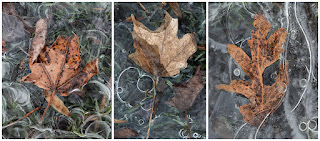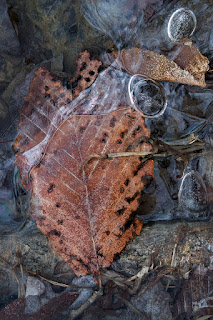"I should like to propose that we look at this element of freshness, of newness, of strangeness, as a thread along which to place the activities of the consciously creative artist, the conscious patron and critic of the creative artist, and the common man — common in the sense that he has no specified part in creation or criticism. If we make one criterion for defining the artist (as distinct from the craftsman and the trained but routine performer of dance, drama, or music) the impulse to make something new, or to do something in a new way — a kind of divine discontent with all that has gone before, however good — then we can find such artists at every level of human culture, even when performing acts of great simplicity."
Wednesday, January 19, 2022
Tuesday, January 18, 2022
Early Morning Walk
a blessing for the whole day."
- Frédéric Gros (1965 - )
A Philosophy of Walking
Sunday, January 16, 2022
Janusian Creativity
- Ainissa Ramirez (1969 - )
Postscript. I have written before about my lifelong penchant for sometimes seeing things not so much visually (at least, at first), but as free-form assemblages of rapid-fire associations and memories that percolate up from my unconscious. A recent example was when an obscure (and certainly not consciously retrievable) passage from a novel by Vonnegut I last read about 30 years ago made my head swivel to look at an equally obscure stain on a piece of driftwood. A similar experience made me look at what in "reality" is nothing but leaves entangled in a bit of ice, but which I "saw" as a melodic string that went, "Janus, Kandinsky, and Yin|Yang." This is close to literal truth. My brain was reacting to this string of associations before I consciously "recognized" what my eye/brain/I was actually looking at! These experiences are far from unique for me, but sadly do not appear very often. But when they do... Ahh, pure magic and joy; a Janusian creative moment, one might say 😊
Saturday, January 15, 2022
Signs of Nature
"Morphology rests on the conviction that everything that exists must signify and reveal itself. From the first physical and chemical elements to the spiritual expression of man we find this principle to hold. We turn immediately to that which has form. The inorganic, the vegetative, the animal, the human. Each one signifies itself, each one appears as what it is to our external and our internal sense. Form is something changeable, something becoming, something passing. The doctrine of metamorphosis is the key to all of the signs of nature."
Friday, January 14, 2022
Fine-Tuning
Postscript. And so, we have a repeat of the "apology" I made a bit over a week ago, after posting a "poor quality" iPhone image captured while out on my morning walk with my wife. But I continue to be mesmerized by the (unfortunately, dwindling number of) ice abstracts our walks sometimes reveal. This one is from this morning. And, as before, I am looking forward to resuming an earnest search for "otherworldly vistas" (with "real" camera in hand) tomorrow, as some cold weather is again predicted over the next few days. Stay tuned 🙂
Tuesday, January 11, 2022
Invisible Links
"In my youth I regarded the universe as an open book, printed in the language of physical equations, whereas now it appears to me as a text written in invisible ink, of which in our rare moments of grace we are able to decipher a small fragment.
Monday, January 10, 2022
Different Schemes and Patterns
Ernst Cassirer (1874 - 1945)
An Essay on Man







